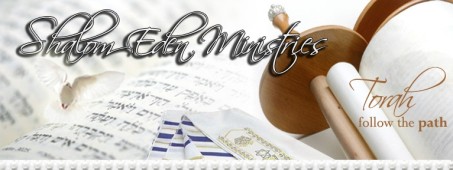BIBLE STUDY LESSON 12
NORTHERN COALITION
THE CONQUEST OF HAZOR
From Joshua 11
“King Jabin of Hazor soon heard about Joshua’s victories and sent word to a number of other kings; King Jobab of Madon, the king of Shimron, the king of Achshaph, the kings of the hill country in the north, the kings of the Arabah south of Chinneroth, the kings of the lowland, those in the region of Dor on the west, the kings of Canaan east and west, the kings of the Amorites, Hittites, Perizzites, Jebusites and kings of the Hivites who lived by the foot of Mount Hermon in the land of Mizpah. Soon vast armies from all of these kings arrived at the Springs of Merom. There were great armies of men, horses and chariots; so many that they seemed as the sands on the seashore. A camp was set up at the Springs of Merom from which the battle against Israel would be waged. ‘Don’t be afraid of them,’ the Lord told Joshua. ‘By this time tomorrow, you will have conquered them. You will hamstring their horses and burn their chariots.’
So Joshua and his forces made a surprise attack at the Springs of Merom. Before long, Israel had defeated all of this vast army, chasing the troops as far as Great Sidon and Misrephoth-maim and the Valley of Mizpah to the east. They continued destroying the forces until there was no one left. Then Joshua did what the Lord had commanded: he hamstrung the horses and burned the chariots. When he returned, Joshua captured Hazor and killed its king. It was an important victory, for Hazor had once been the capital of all these kingdoms. All of the people of Hazor were destroyed and then the city was burned. One by one, Joshua captured all the other cities represented in that great battle, along with their kings and destroyed all their people, as Moses the servant of the Lord had commanded. However, Joshua did not burn any city that was built on a mound, except Hazor. All of the cattle and valuable goods were captured to be used by the Israelites, but the people were destroyed. The Lord had commanded Moses and Moses had commanded Joshua about these things, so Joshua did as the Lord had said.
Joshua became the victor over that land, the hill country and the Negeb, the land of Goshen, the lowlands, the Arabah and the hill country and lowlands of Israel, from Mount Halak; near Seir, as far as Baal-gad in the Valley of Lebanon at the foot of Mount Hermon. It took seven years, but Joshua destroyed all of these kings and their kingdoms. Not one city, except the Hivites at Gibeon, was given a peace treaty; all kings and their cities were destroyed. The Lord caused these enemy kings to want to fight Israel so that they might be destroyed, receiving no mercy. This was all done according to the instructions the Lord had given to Moses. Joshua also defeated the Anakim, descendants of Anak, whose cities were throughout the mountain country at Hebron, Debir, Anab and the mountain country of Judah and Israel. He destroyed all of these cities and peoples. The Anakim were completely destroyed, except a few who were in Gaza, Gath and Ashdod. Thus Joshua conquered the entire land as the Lord had commanded Moses. Then he gave it to Israel for an inheritance, dividing it among the tribes as planned. At last the land had rest from war.
COMMENTARY
THE BATTLE OF THE WATERS OF MEROM AND HAZAR
The kings of northern Canaan assembled a great army. They had many war chariots, the tanks of the ancient world. Although Israel had none, God gave His people victory. “Burn the chariots and hamstring the war horses,” God commanded. The people of the Lord must always depend on Him, not on military superiority. When the king of Hazor summoned the rulers of northern Canaan to join him in his stand against the Israelites, the response was overwhelming. They crowded into the nearby village of Merom with horses, chariots and foot soldiers numbering in the thousands. For several anxious years these leaders had watched Joshua conquer and settle many villages in the south. Now they were determined that the Israelite threat would reach no farther. Hazor must have seemed a logical place to rally against the Israelites. For centuries it had been the centre of political power in Canaan. The city was also an important stop on the main international road through the land. Ancient caravans on the long trek from Babylonia to Egypt passed directly through Hazor, building it into an influential trade centre. Although Hazor’s strength had faded by King Jabin’s time, it remained the largest city in Canaan. The huge armies assembled near Hazor were too certain of their victory. Joshua’s swift attack swept through the troops, leaving few survivors and crippling the chariot horses. Hazor itself burned to the ground. The ruin was so complete that much of the city was never resettled. With this devastating blow, the Israelites made a major gain in their control of Canaan.
TEST YOURSELF
1.) Where did the kings gather in their up rise against Israel?
A.) At the foot of Mount Hermon
B.) In the region of Dor
C.) At the Springs of Merom
2.) What had to be done with the Chariot and Horses?
A.) Horses should be killed and the chariots burned
B.) Chariots and horses could be taken as loot
C.) The chariots burned and the horses hamstringed
3.) How long did it take Joshua to destroy all these kings and their kingdoms before he gave it as inheritance?
A.) 27 Years
B) 17 Years
C.) 7 Years |
